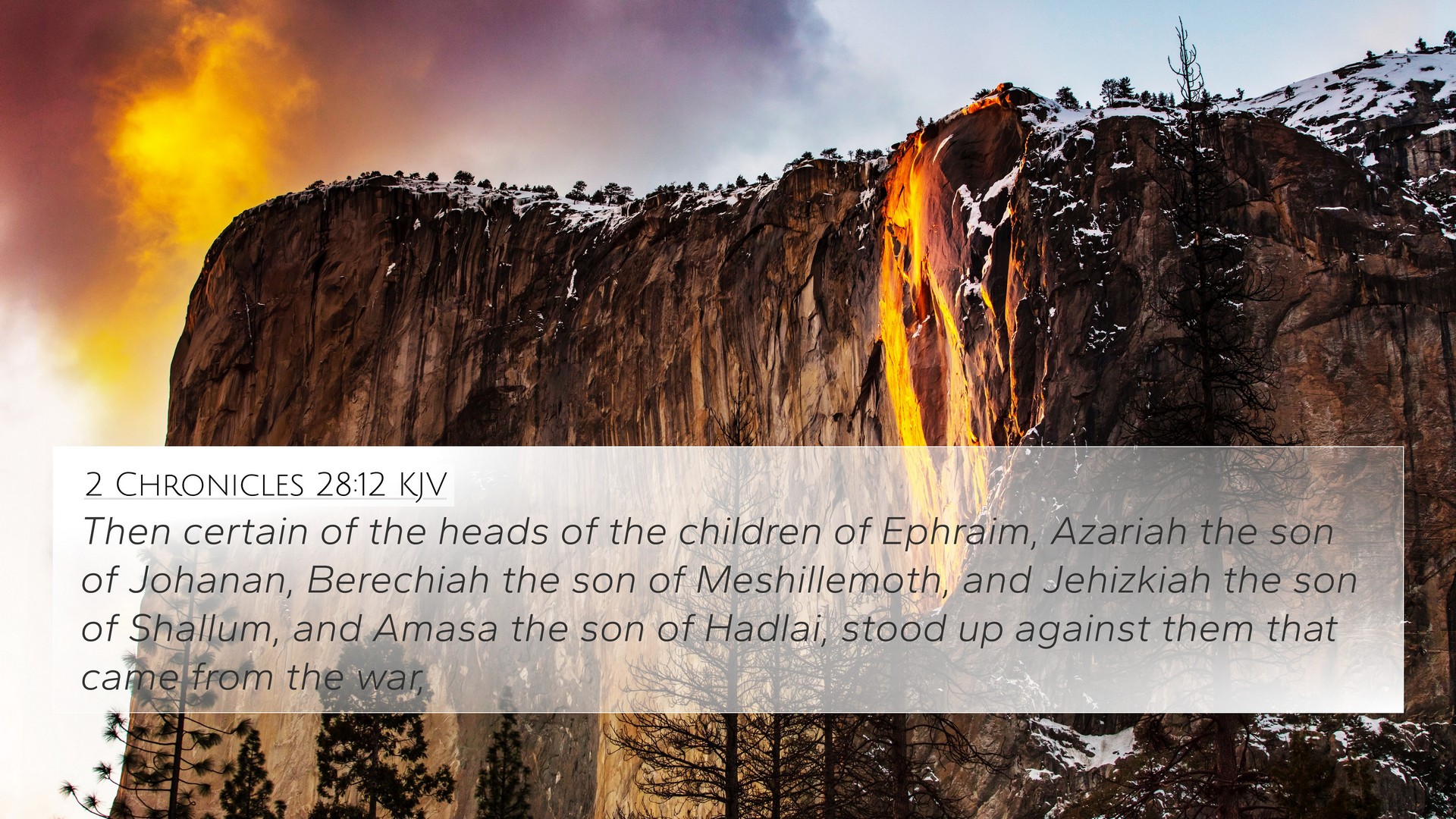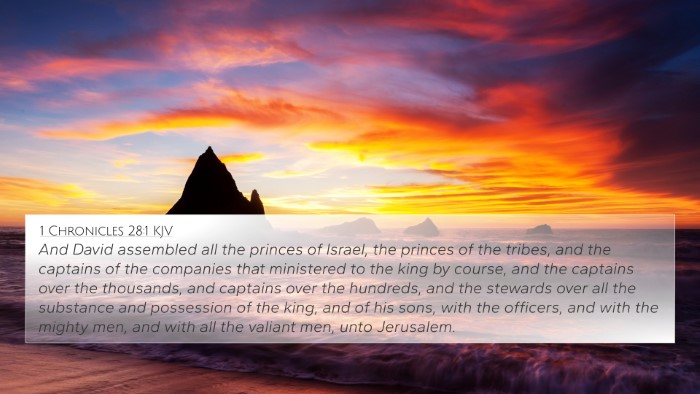Understanding 2 Chronicles 28:12
Verse Context: 2 Chronicles 28:12 states, "Then some of the leaders of the children of Ephraim, Azariah the son of Johanan, Berachiah the son of Meshillamoth, and Jehizkiah the son of Shallum, and Amasa the son of Hadlai, stood up against those who came from the war."
Summary of the Verse: This verse highlights a significant moment during the reign of King Ahaz of Judah when leaders from the northern tribes of Israel, specifically Ephraim, became critical of the actions being taken against their own people by their king. These leaders took a firm stance in opposing what they viewed as harmful actions and sought to prevent further calamity.
Commentary Insights
-
Matthew Henry:
Henry notes that the identification of individuals in this verse signifies involvement from key figures in the community, emphasizing the weight of their decision to confront the actions being taken. Their bravery is commendable, as they seek to protect their brethren from suffering due to the misdeeds of King Ahaz.
-
Albert Barnes:
Barnes reflects on the urgency and moral imperative felt by the leaders of Ephraim. Their reaction illustrates the complex dynamics between the tribes of Israel and Judah, exposing a crack in the political and spiritual unity of the nation. The leaders acted not only out of concern for their fellow Israelites but also in maintaining fidelity to God.
-
Adam Clarke:
Clarke provides insight into the implications of the leaders’ actions. Their stand against King Ahaz serves as a pivotal moment demonstrating the need for accountability among leaders. By opposing an unjust direction, they act in the spirit of righteousness, reflecting the prophetic call to uphold justice within the community.
Cross-Referencing Biblical Texts
This verse resonates with various other scriptures that provide deeper insights into the themes of leadership, accountability, and communal responsibility:
- Isaiah 7:1-2: This passage describes the fears surrounding King Ahaz’s reign and offers context to the struggles faced by the Judahites.
- 2 Kings 16:5-6: This parallel account narrates the same events, showcasing the impending war and the alliances formed during Ahaz’s reign.
- Micah 4:10: This verse speaks about suffering and exile, connecting to the broader narrative of the consequences of leadership choices.
- 1 Chronicles 5:25-26: This reference deals with the issues of betrayal among tribes, a theme echoed in the response of the leaders in 2 Chronicles 28:12.
- Proverbs 29:2: A reminder that when the righteous are in authority, the people rejoice, relating to the importance of godly leadership.
- Jeremiah 5:1: This verse details the search for a righteous man, resonating with the stance taken by the leaders of Ephraim.
- Ezra 10:5: Illustrates a collective response to wrongdoing, drawing parallels to the communal nature of the leaders’ efforts in 2 Chronicles.
Thematic Connections
2 Chronicles 28:12 encapsulates several themes that are prevalent throughout scripture:
- Leadership and Accountability: The necessity for leaders to be held accountable for their decisions is emphasized.
- Community Solidarity: The involvement of leaders from Ephraim shows the importance of standing together against wrongdoing.
- Righteousness Versus Wickedness: The encounter highlights the ongoing struggle between a righteous path and the choices made by corrupt leadership.
Conclusion
In conclusion, 2 Chronicles 28:12 serves as a poignant reminder of the role of leadership within a community and the critical importance of accountability and righteousness. Cross-referencing with other related biblical texts enriches our understanding, revealing deep connections and the ongoing themes of justice, unity, and moral integrity found throughout the scriptures.
Exploring the connections between Bible verses enhances one’s understanding of scripture, making it easier to navigate through complex narratives and divine principles. By utilizing tools for Bible cross-referencing and Bible reference resources, one can delve deeper into these themes and uncover the intricacies of biblical teachings.




